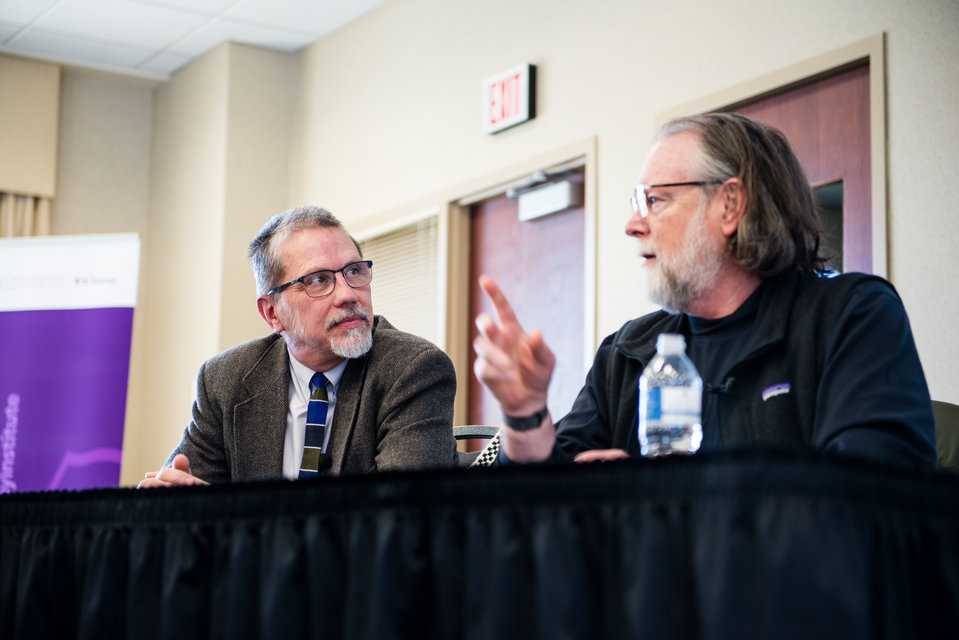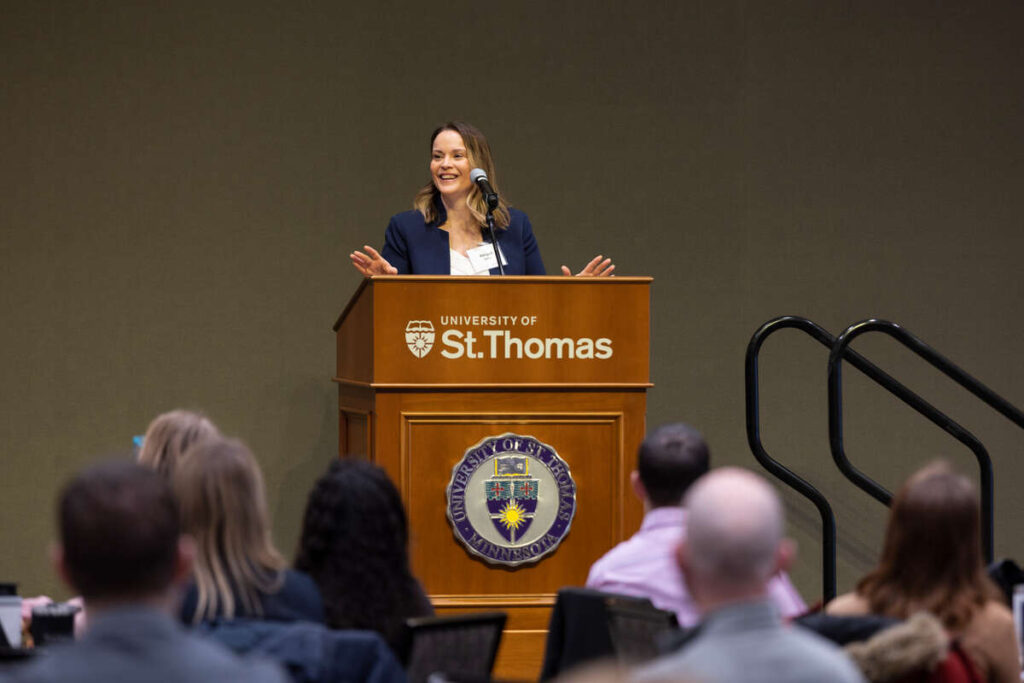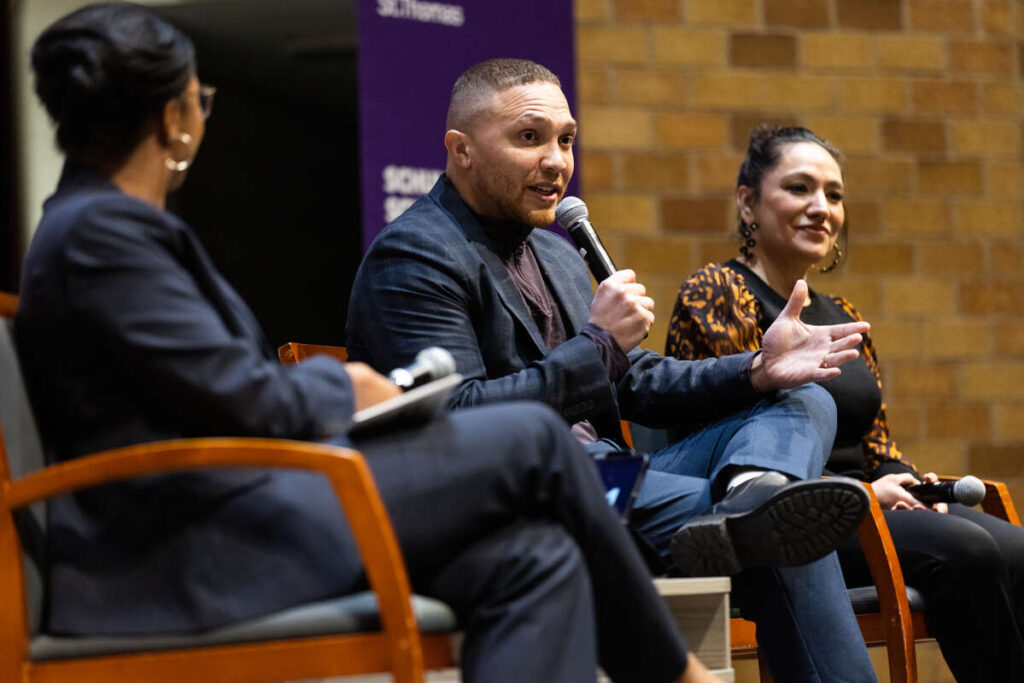Whether on VISION trips or service learning-based courses, countless Tommies have taken mission trips as part of their life experience. Thursday’s “Hot Topics, Cool Talks” from the Terrence J. Murphy Institute for Catholic Thought, Law and Public Policy was a fitting topic, then, as panelists Dr. John O’Keefe of Creighton University and Dr. Gerald Schlabach of St. Thomas discussed, “Should we take mission trips off the bucket list?”
Underlying tensions around the issue are wide-ranging, including questions of whether Americans seek these experiences are sought for superficial reasons, whether people in developing countries are exploited and whether aid legitimizes relying on a foreign entity.
O’Keefe, a professor of theology and the director of the Center for Catholic Thought and co-host of the podcast “Catholic Comments,” is involved in documentary filmmaking projects that explore the mission of the Catholic Church in the developing world. Schlabach, a professor of theology, former chair of the Department of Justice and Peace Studies, and winner of the 2012 Service-Learning Faculty Award, has led students on mission trips to San Lucas, Guatemala, for 18 years.
The pair discussed several elements of the value and dangers of mission trip experiences, especially for students. Here are five observations from their discussion.
The most important work takes place when you get back.
Working with his students in the mediums of photography and film, O’Keefe said he has grappled for years with the tension of whether subjects are exploited by their work even in the best instances of advocacy and attempting to help. He said students work for months ahead of trips in understanding their role as witnesses in the time they are there, and using their experiences to do more.
“The most important thing we tell them is that we’re not going to change the world. We really hope they’re going to be changed by the experience, and the rest of their life they can work for systematic change,” he said.
You shouldn’t be a chameleon and revert right back to your own culture.
In returning to their own community and daily life, mission trip workers in the United States need to have an awareness of not putting their experience “on the shelf.” As easy as it can be to get sucked “back into the vortex of American consumerism,” O’Keefe said, mission trips represent the potential for people to change the underlying way they view everything. To maintain that, he added, “you need to be in a community that calls you to account.”
The impact of mission trips can come a lot closer to home than many realize.
An audience member prompted a discussion of whether students are more open to the impact of mission work when it comes in a foreign country versus the United States. O’Keefe acknowledged the unsustainability of flying all over the world to facilitate the impact of mission trips, especially when some of the poorest places in the Western hemisphere are in the United States. Students may be more open initially to the impact of trips in foreign countries, but “it has to do more with how you’re formed and an openness to seeing what’s there,” he said. That can come anywhere.
People shouldn’t go on mission trips to solve everything...
Schlabach has brought students to Guatemala for nearly two decades, and part of the message these is that they’re not going to solve huge, systemic problems in their time there. “We’re introducing students to the tensions, and at least trying to make them creative tensions. You’re dealing with some of the most complex questions on the globe; to think you would have an ultimate solution would be the cheekiest thing you could do,” he said.
People should go on mission trips with solidarity as the underlying goal.
Speaking to the question itself of whether mission trips belong on bucket lists, Schlabach drew a definitive line that they should not. “Mission trips don’t belong on bucket lists, but that’s because bucket-list mentalities are the problem. Mission trips can be a way to weave networks of solidarity and initiate young people into them, if solidarity itself is the mission,” he said.







